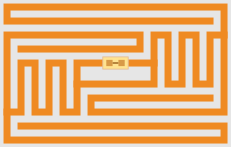Good morning,
Whitewater’s forecast today calls for a sunny day, with a high of fifty-three degrees.
In the City of Whitewater, there will be a meeting of the Alcohol Licensing Commission at 6 p.m. tonight.

Over at Wired, there’s a story about how purchasing groceries (and tracking inventory) may become much easier. In “New RFID Tag Could Mean the End of Bar Codes,” Lisa Grossman writes that
Lines at the grocery store might become as obsolete as milkmen, if a new tag that seeks to replace bar codes becomes commonplace.
Researchers from Sunchon National University in Suncheon, South Korea, and Rice University in Houston have built a radio frequency identification tag that can be printed directly onto cereal boxes and potato chip bags. The tag uses ink laced with carbon nanotubes to print electronics on paper or plastic that could instantly transmit information about a cart full of groceries.
“You could run your cart by a detector and it tells you instantly what’s in the cart,” says James M. Tour of Rice University, whose research group invented the ink. “No more lines, you just walk out with your stuff.”
RFID tags are already used widely in passports, library books and gadgets that let cars fly through tollbooths without cash. But those tags are made from silicon, which is more expensive than paper and has to be stuck onto the product as a second step.
“It’s potentially much cheaper, printing it as part of the package,” Tour says.
There’s a long way to go, and this research isn’t store-ready; it’s still a proof-of-concept effort. There’s also been talk before about RFID tags in stores, but it’s remained only talk. Still, this has come so far not by government mandate, but through the discoveries of scientists that cannot be assured through regulation or business pressure.
(Photo of a currently-used RFID tag.)
